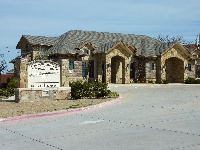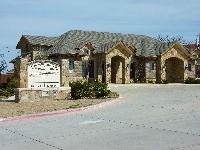Arlington Family Law Lawyer, Texas
Featured Law Firm
-
 x
x

Click For More Info:
-
Anderson Legal Group, P.C.
5209 Heritage Avenue Colleyville, TX 76034 » view mapDivorce & Family Law Achieve your results & Reduce Your Stress
With our extensive knowledge and great working relationships with the family law courts we can provide the assistance you need.
800-931-7141  Andrew Anderson City, State
Andrew Anderson City, StateAttorney At Law - State, Year
Law School, J.D. - Year
 News
NewsClick here to learn more about our firm.
 Contact UsEmail or Call 24/7
Contact UsEmail or Call 24/7Call today for your initial consultation.
Includes: Collaborative Law, Domestic Violence & Neglect, Paternity, Prenuptial Agreements
George Bienfang
George Bienfang was born on an Air Force base in Vermont and grew up in Texas and Louisiana, finishing high School at Dallas Jesuit. George graduated ... (more)
Brandy M Austin
✓ VERIFIEDHello, my name is Brandy Austin. I am a general practice attorney and founder of the Brandy Austin Law Firm in Arlington, TX. My firm is known for its... (more)
Mark Stephen Cochran
✓ VERIFIEDMark S. Cochran exclusively practices Family Law, which includes divorce, visitation establishment and enforcement, child support establishment and en... (more)
Elizabeth Nielsen
✓ VERIFIEDElizabeth Nielsen first knew she wanted to be a lawyer when she was in fifth grade and watched a family member run for a judicial position in Dallas. ... (more)
Daniel Dale Bohmer
Daniel Bohmer is a lifelong resident of Mesquite, Texas. He attended undergraduate at Texas A&M University in College Station, Texas where he earned a... (more)
Mark Stephen Cochran
✓ VERIFIEDMark S. Cochran exclusively practices Family Law, which includes divorce, visitation establishment and enforcement, child support establishment and en... (more)
Andrew J. Anderson
✓ VERIFIEDAfter practicing for almost a decade at well-respected Dallas law firms, Andrew J. Anderson decided to form Anderson Legal Group, P.C. The focus of t... (more)

 News
News Contact UsEmail or Call 24/7
Contact UsEmail or Call 24/7












